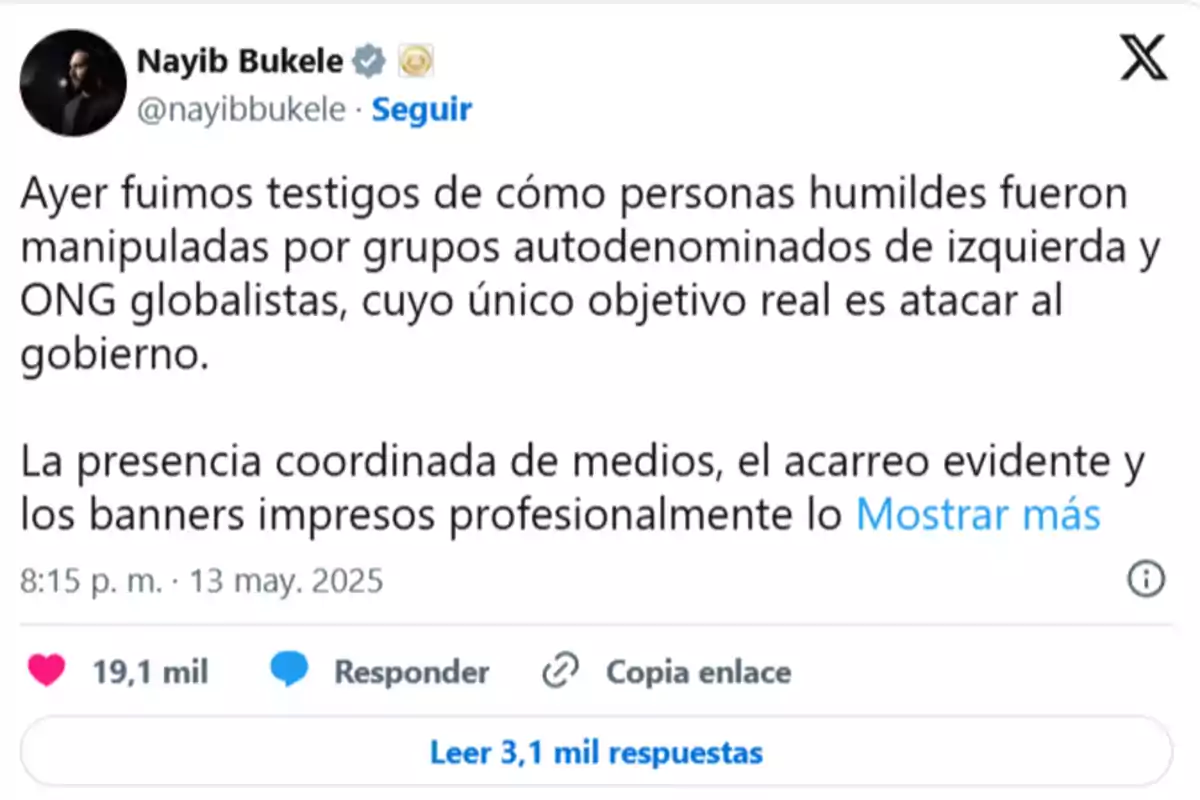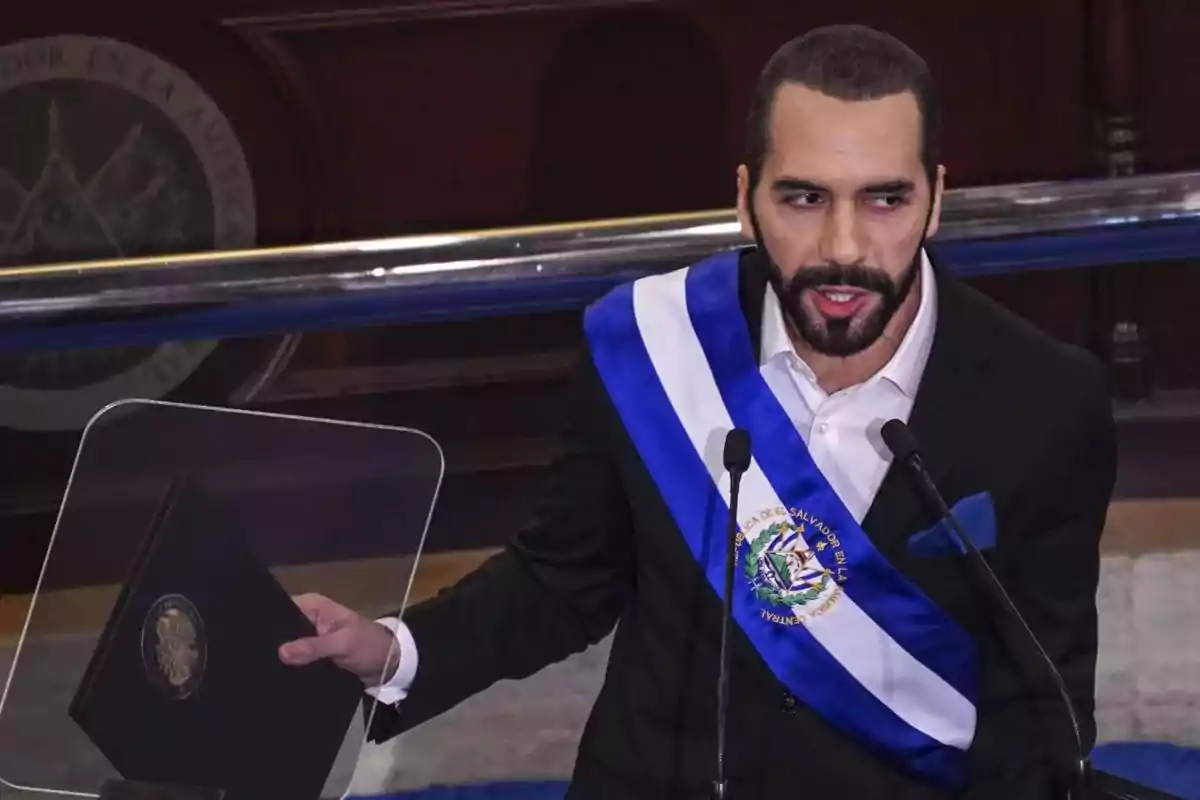
Bukele imposes a massive tax on foreign NGOs in El Salvador
The Foreign Agents Law in El Salvador establishes a 30% tax on international donations for NGOs
The Legislative Assembly of El Salvador approved on Tuesday, May 20 a controversial legislation that drastically redefines the functioning of non-governmental organizations (NGOs) in the country. It is the Foreign Agents Law, a regulation that, in the style of the homonymous law in force in Russia, imposes a 30% tax on international donations and creates a system of registration, prior authorizations, fines, and even the possibility of closure, all under the discretion of the Executive.
Directly promoted by President Nayib Bukele and his party Nuevas Ideas (NI), the law was approved by 57 of the 60 Congress members, without any opposition votes. The regulation will come into effect eight days after its publication in the official gazette.

Comprising 25 articles, the law establishes that NGOs will not be able to receive or use foreign donations for activities that have not been previously declared to the State, nor change the destination of the funds without notice. Additionally, it prohibits receiving resources from anonymous sources and provides for economic sanctions ranging from $10,000 to $200,000.
One of the most alarming aspects for international organizations is that Article 20 of the law enables the president to define the scope and interpretations of the regulation through his own decrees:
"The president may approve as many application and development regulations of this law as necessary for the establishment of definitions, fulfillment of its purposes, attributions, and competencies," the text states.
In fiscal terms, the measure imposes a 30% tax on "financial transactions, disbursements, transfers, importation in kind or material goods of any type from foreign mandates." This will directly affect organizations that rely on international cooperation to carry out social, educational, or humanitarian projects.
Opposition deputy Claudia Ortiz, from the Vamos party, expressed her outright rejection of the law and warned about its alleged authoritarian implications:
"It is an authoritarian tool for censorship and the weakening of civic space," she stated. "It will be at the ambiguous and arbitrary discretion of the Government to whom the tax will be imposed and to whom it will not. It threatens democracy, the rule of law, and the respect for freedom of association and expression."

The organization Human Rights Watch (HRW) also expressed its concern and linked the Salvadoran regulation with precedents in regimes with low democratic quality.
"We have documented how similar laws in countries like Russia and Nicaragua have been used to stigmatize, control, and silence civil society and independent media," the organization stated in a communiqué.
"These laws label organizations that receive international funding as agents of foreign powers, impose burdensome bureaucratic requirements, facilitate state interference, and can lead to censorship or closure of organizations."
The current version of the law recalls a previous attempt by Bukele's Government in 2021, which contemplated a 40% tax, although it was eventually shelved. Now, with a consolidated legislative majority, the Executive managed to advance without obstacles. From the official side, however, the regulation is justified as a measure of transparency, financial sovereignty, and protection against possible external interference.
More posts: